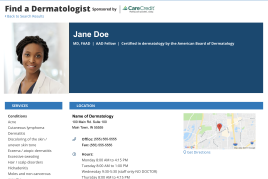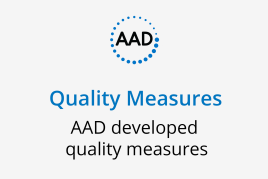Paraneoplastic syndromes (PNS) associated with merkel cell carcinoma are analogous to small cell cung Cancer: A comparison to other lung cancers

By Warren R. Heymann, MD
Sept. 2, 2016
Merkel cell carcinomas (MCC) are neuroendocrine tumors associated with the Merkel cell carcinoma polyomavirus in >80% of tumors (1). Small cell lung cancer, another neuroendocrine tumor, is associated with paraneoplastic syndromes (PNS) in up to 20% of cases, notably the syndrome of inappropriate antidiuretic hormone (SIADH) and Lambert-Eaton myasthenic syndrome.
Iyer et al reported 8 cases of PNS associated with MCC and reviewed the literature on 13 other cases. Of the 8 cases, three distinct PNS types were observed: cerebellar degeneration (1 case), Lambert-Eaton myasthenic syndrome (2 cases), and malignancy-associated hyponatremia (5 cases). All PNS in this study were associated with advanced MCC (regional nodal or distant metastatic). Of the 8 patients classified as having a PNS, 3 died of MCC and 5 were alive at the end of the study period. The authors note that treatment of the underlying tumor will typically lead to resolution of the PNS. They suggest that unexplained neurologic changes and/or hyponatremia should raise suspicions for MCC as a possible cause of the PNS (2).
I have always been intrigued by paraneoplastic phenomena. Aside from non-melanoma skin cancer, the most common malignancies in the US are breast cancer followed by lung cancer. Owen (3) reminds us to think of lung cancer (of all types) when assessing the following cutaneous disorders:
Ectopic ACTH syndrome which usually presents as Addisonian-type hyperpigmentation more likely than as Cushing syndrome (bronchial carcinoid > SCLC > adenocarcinoma)
Bronchial carcinoid variant syndrome presenting as episodic flushing of the face, neck, and chest
Secondary hypertrophic osteoarthropathy (non-small cell lung cancer)
Erythema gyratum repens (lung cancer > stomach cancer > esophageal cancer > breast cancer)
Acanthosis nigricans/Leser-Trélat/Tripe palms (gastric tumor > lung cancer. Interestingly, when tripe palms are seen without AN, lung cancer > gastric)
Hypertrichosis lanuginosa “malignant down” (women: colorectal > lung > breast; men: lung > colorectal – the lung cancers may be small cell or non-small cell types)
Superior vena cava syndrome (usually small cell lung cancer)
Dermatomyositis (adenocarcinomas of the ovary, cervix, lung, pancreas, bladder, and stomach account for 70% of the associated malignancies, with ovarian cancer overrepresented)
This list, of course, is only partial. Other cutaneous disorders such as acquired ichthyosis, pruritus, exfoliative erythroderma, dermatitis herpetiformis (not just intestinal lymphoma, really!), anti-epiligrin cicatricial pemphigoid, amongst others may be paraneoplastic disorders that may be secondary to lung cancer. When faced with these entities, an ounce of suspicion may be worth a pound of cure.
1. Liu W, et al. Merkel cell polyomavirus infection and Merkel cell carcinoma. Curr Opin Virol 2016; 20: 20-7.
2. Iyer JG, et al. Paraneoplastic syndromes (PNS) associated with Merkel cell carcinoma (MCC): A case series of 8 patients highlighting different clinical manifestations. J Am Acad Dermatol 2016; 75: 541-7.
3. Owen CO. Cutaneous manifestations of lung cancer. Semin Oncol 2016; 43: 366-9.
All content found on Dermatology World Insights and Inquiries, including: text, images, video, audio, or other formats, were created for informational purposes only. The content represents the opinions of the authors and should not be interpreted as the official AAD position on any topic addressed. It is not intended to be a substitute for professional medical advice, diagnosis, or treatment.
DW Insights and Inquiries archive
Explore hundreds of Dermatology World Insights and Inquiries articles by clinical area, specific condition, or medical journal source.
All content solely developed by the American Academy of Dermatology
The American Academy of Dermatology gratefully acknowledges the support from Incyte Dermatology.
 Make it easy for patients to find you.
Make it easy for patients to find you.
 Meet the new AAD
Meet the new AAD
 2022 AAD VMX
2022 AAD VMX
 AAD Learning Center
AAD Learning Center
 Need coding help?
Need coding help?
 Reduce burdens
Reduce burdens
 Clinical guidelines
Clinical guidelines
 Why use AAD measures?
Why use AAD measures?
 Latest news
Latest news
 New insights
New insights
 Combat burnout
Combat burnout
 Joining or selling a practice?
Joining or selling a practice?
 Advocacy priorities
Advocacy priorities
 Promote the specialty
Promote the specialty

